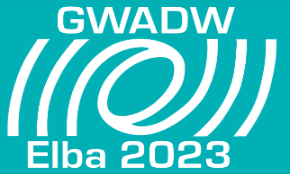Speaker
Description
Squeezed light has achieved remarkable success in enhancing the sensitivity of GW detectors, with up to 6dB improvements in GEO600 and frequency-dependent squeezing in other detectors. However, this demands extremely high quality for optical systems, as even minimal loss significantly reduces quantum enhancement. This is particularly relevant for next-generation detectors with other operational wavelengths (e.g. around 2 μm), which may not permit flawless photodetection.
We propose a novel approach to compensate for quantum decoherence. Our method employs an optimally tuned quantum squeezer within the signal-extraction cavity, which either restores externally injected squeezing or amplifies the signal, depending on loss levels. This approach allows to achieve the ultimate sensitivity limit, which is defined only by the internal loss in the interferometer.
We present the first experimental enhancement of the detector sensitivity using a combination of externally injected and internally generated squeezing. We demonstrate for the first time quantum sensitivity enhancement independent on the detection loss. This is achieved by tuning the internal squeeze strength in an optimal way, as prescribed by the new decoherence-induced quantum limit.
This study, with its experimental evidence and new quantum limit, paves the way for new approaches to next-generation interferometer designs with enhanced sensitivity and high loss tolerance.

